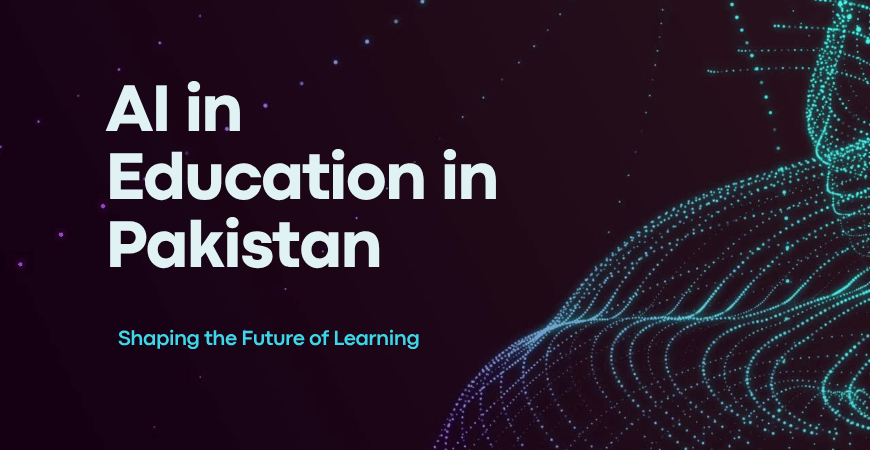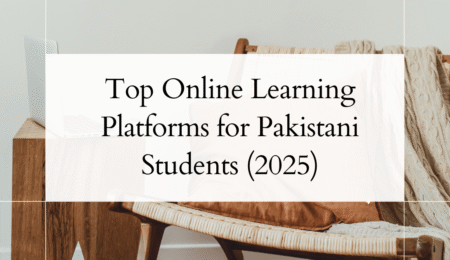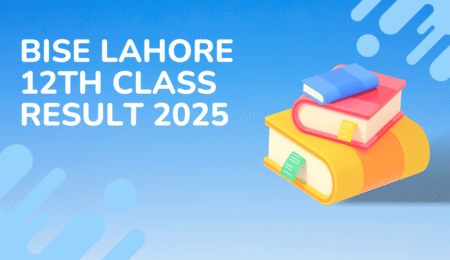AI in Education in Pakistan | How Technology is Transforming Learning
How AI in Education in Pakistan is Transforming Learning
Artificial Intelligence (AI) is no longer a futuristic concept—it is reshaping industries, economies, and societies across the globe. Education is one of the sectors where AI has begun to play a transformative role. In Pakistan, where the education system faces deep-rooted challenges such as outdated curricula, lack of accessibility, teacher shortages, and resource constraints, AI in education in Pakistan offers new hope for modernization and inclusion.
Current Education Landscape in Pakistan
Before exploring the role of AI, it’s important to understand the realities of Pakistan’s education system:
-
Access Inequality: Millions of children, especially in rural areas, do not have access to quality education.
-
Teacher Shortages: A significant gap exists between student population and trained teachers.
-
Outdated Curriculum: Rote-learning dominates classrooms, with little focus on creativity or problem-solving.
-
Language Barriers: With over 70 languages spoken in Pakistan, uniform content delivery remains a challenge.
Here, artificial intelligence in Pakistani education has the potential to bridge gaps and modernize the learning experience.
Personalized Learning with AI in Pakistan
One of the biggest contributions of AI in education is personalized learning. Traditional classrooms rely on one-size-fits-all methods, leaving many students behind. AI-driven platforms can now:
-
Identify weak areas in subjects like mathematics or science.
-
Offer targeted exercises tailored to each student’s progress.
-
Create adaptive quizzes that adjust difficulty based on performance.
-
Provide AI-powered English and Urdu language learning support.
Pakistani ed-tech startups such as Taleemabad, Noon Academy, and Sabaq are introducing AI-based personalized learning tools, making education more interactive and student-centered.
AI Tools Empowering Teachers in Pakistan
Teachers are central to education, but many in Pakistan face overwhelming workloads. AI is becoming a support system for them through:
-
Automated Grading – saving time by checking assignments and tests.
-
Lesson Recommendations – based on student data and performance.
-
Language Translation Tools – enabling teaching in Urdu, English, or regional languages.
-
Class Engagement Monitors – tracking student attention in online classes.
By integrating AI in Pakistani classrooms, educators can focus more on mentorship instead of repetitive administrative tasks.
Remote Learning and Accessibility through AI
The pandemic highlighted Pakistan’s struggle with online education, but AI is now helping overcome these barriers:
-
AI chatbots and voice assistants deliver lessons even without high-speed internet.
-
Low-bandwidth platforms allow video lectures to be streamed with minimal data.
-
Virtual AI tutors assist students who lack access to private academies.
This is especially beneficial for rural communities, where traditional resources are scarce. AI in education in Pakistan is bridging the urban-rural divide.
AI for Skills Development and Career Guidance
Pakistan’s youth need more than traditional degrees; they require skills for the digital economy. AI contributes by:
-
Career counseling systems that recommend courses and scholarships.
-
Skill-building apps that adapt to learners’ strengths and weaknesses.
-
Predictive analytics that forecast job market needs and guide curriculum updates.
Through AI-powered career guidance in Pakistan, students are better prepared for global competition.
Challenges of Implementing AI in Education in Pakistan
Despite the opportunities, challenges remain:
-
Digital Divide: Limited internet access in rural areas.
-
High Costs: Advanced AI platforms require investments many schools can’t afford.
-
Teacher Training: Lack of awareness and resistance to new technologies.
-
Language Barriers: Most AI tools are built in English, limiting reach.
-
Ethical Concerns: Data privacy and reliance on algorithms must be carefully managed.
Unless addressed, these hurdles could restrict the benefits of artificial intelligence in Pakistani education to only privileged urban students. For trusted stats and insights on Pakistan’s education challenges you can check World Bank – Education in Pakistan
The Future of AI in Education in Pakistan
The way forward requires collective effort. Some necessary steps include:
-
Public-Private Partnerships – to scale AI-powered solutions in public schools.
-
Localized AI Platforms – developed in Urdu and regional languages.
-
Teacher Training Programs – to prepare educators for AI-assisted teaching.
-
Policy and Regulations – to protect data privacy and ensure ethical use.
If adopted strategically, AI in education in Pakistan could modernize classrooms, reduce inequalities, and empower the youth to thrive in the digital age.
Conclusion
AI is not a magic wand for Pakistan’s education crisis, but it is a powerful catalyst for change. From personalized learning to teacher support, from rural accessibility to career counseling, AI is proving its potential.
The challenge lies in overcoming infrastructure gaps, affordability issues, and resistance to change. If these are resolved, AI in education in Pakistan can revolutionize learning, empower students, and prepare the nation’s youth for a competitive global future.
Read Also: Top Online Learning Platforms for Pakistani Students in 2025



